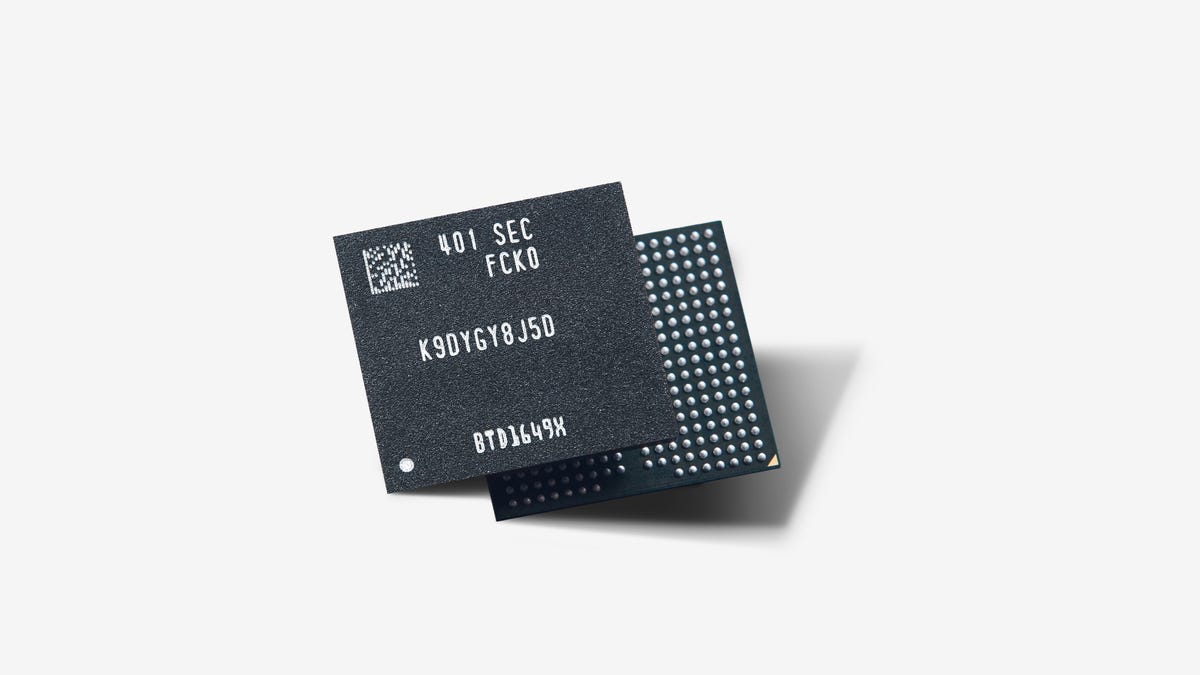Samsung has launched a new vertical NAND (V-NAND) with the highest bit density yet.
The South Korean tech giant said on Tuesday that it has begun mass production of its ninth-generation V-NAND this month which will “set the trend for the high-performance, high-density solid-state drive (SSD) market that meets the needs for the coming AI generation,”
The 1-Terabit (Tb) triple-level cell (TLC) V-NAND has its bit density increased by up to 50% compared to its eighth-generation predecessor that launched in 2022. This was achieved by the chip being made with the smallest cell size and the thinnest mold to date, Samsung said.
It also has a double-stack structure, where there are two stacks of vertically layered cells instead of one. Samsung said it applied channel hole etching on these stacks, where a hole is punched through the layered cells to form electron pathways, a feat that is more difficult the more layers there are.
The company said it also removed dummy channel holes to reduce the surface area of cells and applied technologies to reduce cell interference and extend cell life.
The ninth-generation V-NAND also has the latest NAND interface Toggle 5.1 applied, which allows it to have a data input/output speed of up to 3.2Gbps, a 33% increase from its predecessor, Samsung said, while power consumption has also been lowered by 10%.
It also supports PCIe 5.0 interface, which has double the bandwidth of PCIe 4.0 at 32GT/s, which Samsung said it will use to cement its leadership in the high-performance SSD market.
While the TLC model is already in production, Samsung will start mass production of the quad-level cell (QLC) model, where a cell can store 4 bits of data, in the second half of the year.
